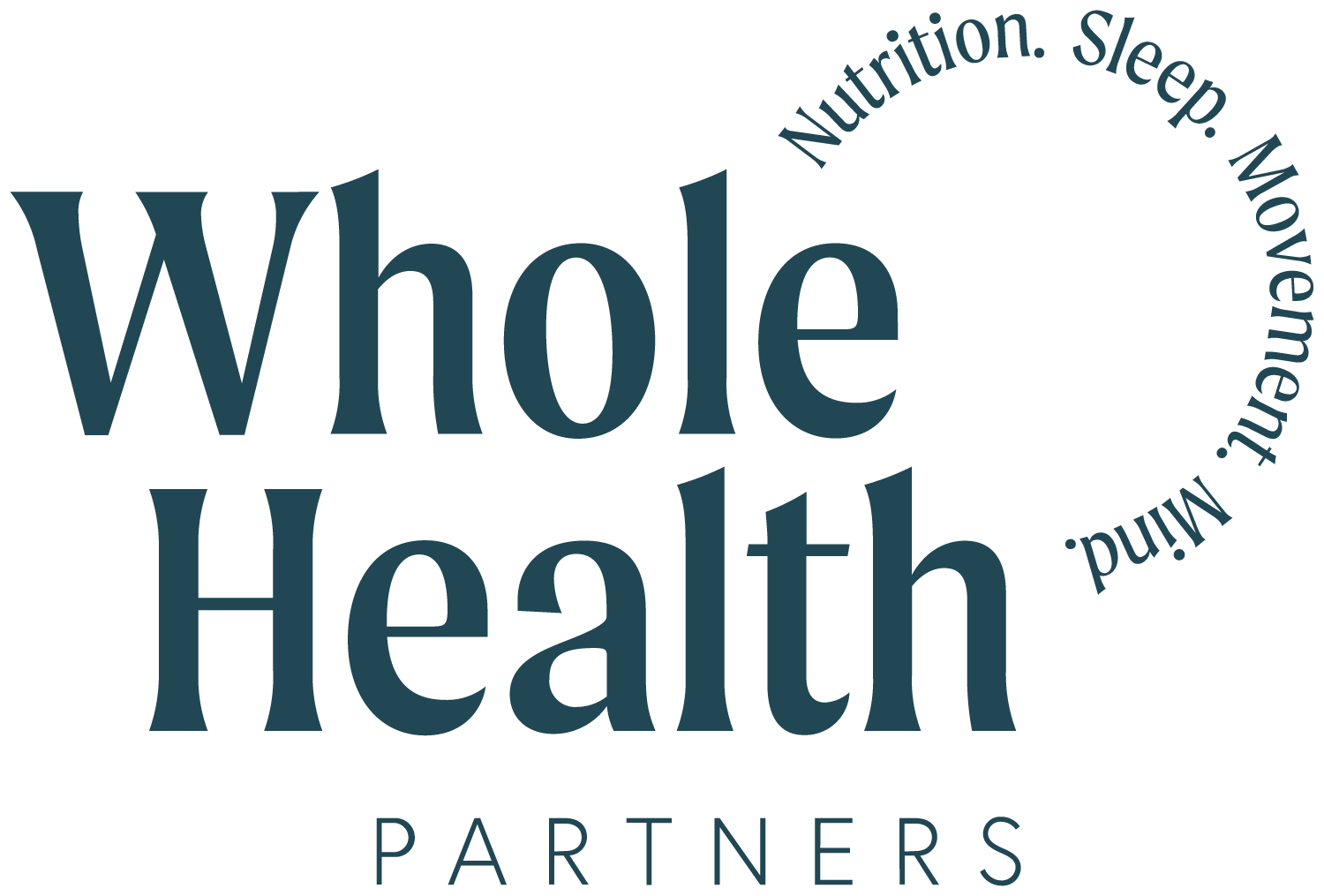How Technology Can Transform Your Wellness Journey
Does your body respond differently to a snack you eat at 10pm, versus if you eat that same thing for lunch?
What does stress do to your blood sugar levels?
How can you easily adapt your meal plan, and still stick to your dietary prescription, when plans for the week change?
These are just a few of the questions that might come up when examining how your behaviors and environment impact your wellbeing. Fortunately, there’s a new breed of interactive wellness technologies that can help to provide some answers.
From FitBits to Apple Watches, many of us are already familiar with how personalized, wearable tech/fitness trackers can help us get more active. These devices, however, are just the tip of the iceberg. As a 100% telehealth-based practice, Whole Health Partners is developing a robust suite of technological solutions that can help support our patients’ health journeys. These include:
Automated Meal Tracking & Planning: Most of us know that meal planning is a good way to meet health goals, but it’s not always easy. That’s why we offer an automated meal tracking and planning app, which will auto-populate a customizable meal plan based on the nutritional parameters that we develop together. It will even allow you to populate and order your grocery list from several major retailers.
Continuous Glucose Monitoring: It’s one thing to understand the theory that food will impact your blood sugar levels. It’s another thing to see it happen in real time. CGMs, or Continuous Glucose Monitors, are essentially micro-sensors that are worn on the arm and and allow you to track blood sugar changes as they happen.
Remote Monitoring: Whether it’s a blue tooth cordless blood pressure cuff or smart scales, these devices help patients gather vitals like weight, BMI, blood pressure and body composition. With your permission, they can actually communicate that data to your health care provider too.
The way our bodies process food and respond to exercise—or other environmental stimuli—is highly personal. All of us have a different metabolism, a different body chemistry, and different life circumstances too. Even the time of day that something is eaten can make a big difference, as our bodies generate different hormone responses that influence where and how the food we eat is stored as energy.
A More Complete Picture
Devices like CGMs or other remote monitoring tools help create a more accurate picture of how the science is panning out in the real world—allowing providers to adjust their counseling moving forward, and to personalize it for each specific patient. This functionality is further enhanced by the fact that these devices will—with a patient’s permission—communicate significant health data to their healthcare team.
Here’s how Kate Queen MD (Whole Health Partners’ medical director) describes the significance of these tools:
“Once upon a time, providers had to track vitals once every visit, or else hope that patients would keep a detailed log at home. The advent of these remote monitoring devices, however, has been a game changer. It allows us to see in real time how physical activity, food choices, stressors or other lifestyle factors are impacting our patients physiologically—and it allows the patient to better understand that connection too.”
Empowering Patients
Patients, too, often report a much clearer understanding of how their choices are impacting their health, and this understanding can be a significant motivator for ongoing change. Brandy S—a patient who has been looking to manage stress and manage her weight—wore a CGM for several weeks in the Fall of 2021. She reported an almost immediate shift in her food habits:
”I know that snacking on sugary foods can cause a spike in blood sugar, but that’s not always what I’m thinking about if I’m indulging in the moment. The CGM helped make that theoretical learning real, and allowed me to connect the dots between my food choices and my mood, and energy levels, for example. I think it’s been a huge motivator in sticking to some of my food goals.”
Real World Results
Our own experiences at Whole Health Partners would suggest that these new technologies are a powerful tool for improved health. We can’t, however, simply rely on subjective analysis or anecdotal evidence to make our recommendations.
That’s why we’ve been pleased to see a growing body of research suggesting that these devices and applications have an important role to play within the field of lifestyle medicine—both in informing providers’ care strategies, and in motivating and educating patients about how their decisions influence their wellness journey.
Of course, technology is never a silver bullet. And there is no hardware or app in the world that can replace the need for remaining conscious and informed about the ways that diet and lifestyle impact your wellbeing. However, as technology progresses, we are excited to harness these powerful tools to support our patients on their long-term health journeys.
References
Anne Kuwabara, Sharlene Su & Jeffrey Krauss, “Utilizing Digital Health Technologies for Patient Education in Lifestyle Medicine,” American Journal of Lifestyle Medicine, 2019
What would you like help with?
Weight Loss and Weight Maintenance
Blood Glucose Management, Diabetes, Insulin Resistance, Hypertension, High Cholesterol, Thyroid Disease, Hormonal Health
Polycystic Ovarian Syndrome (PCOS), Perimenopause/Menopause





